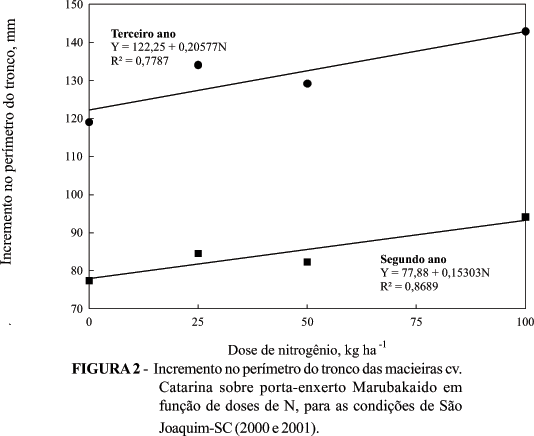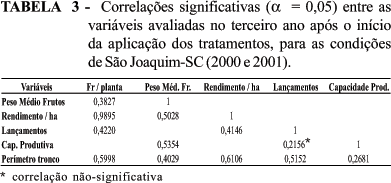The vegetative vigor and the yield potential of the apple trees primarily depend on the initial soil fertilization (growing or plant formation fertilization), which is based mainly on nitrogen application. The "Catarina" apple cultivar selected as scab resistant, seems to be a promising cultivar for higher altitude areas in Southern Brazil. As a new cultivar, fertilizer recommendations for the initial plant formation have not been available yet. For this reason, an experiment was carried out to establish the nitrogen requirement to balance both vegetative vigor and the plant yield potential. The orchard was planted in August 1998 in a shallow soil originated from acid magmatic rocks, in São Joaquim - SC, Brazil. The cultivar studied was Catarina grafted onto Marubakaido rootstock. The area had been limed to elevate the soil pH; phosphorous and potassium were supplied according to fertilizer recommendations. The N rates tested were: 0, 25, 50 and 100 kg ha-1 (sum of three annual applications beginning from the subsequent year to the plantation), placed on the projection of the tree canopy. Eight plants organized in randomized blocks design with eight replications formed the plots. The branches growth of the year and the number of spurs were not affected by any N rates. However, it was supposed that the nitrogen fertilization from previous years had affected the fruit buds nutrition, considering the significant increasing of the number of fruits and the yield of the trees on first year of production.
nitrogen; apple trees; young tree fertilization






